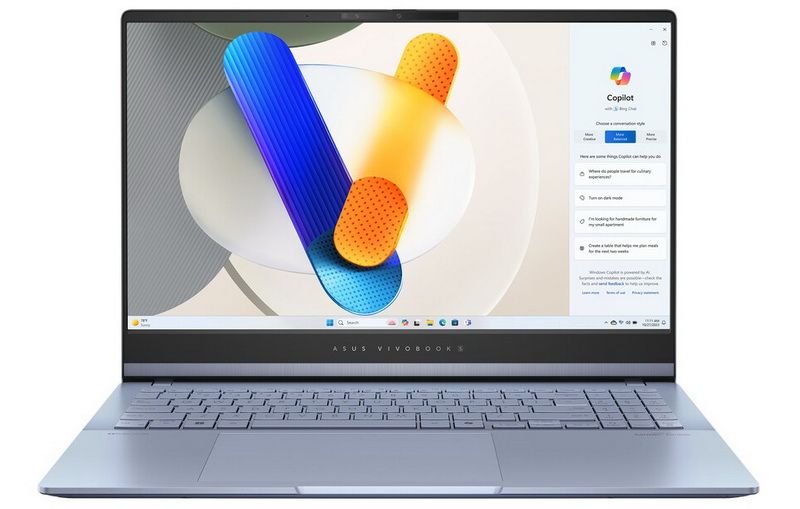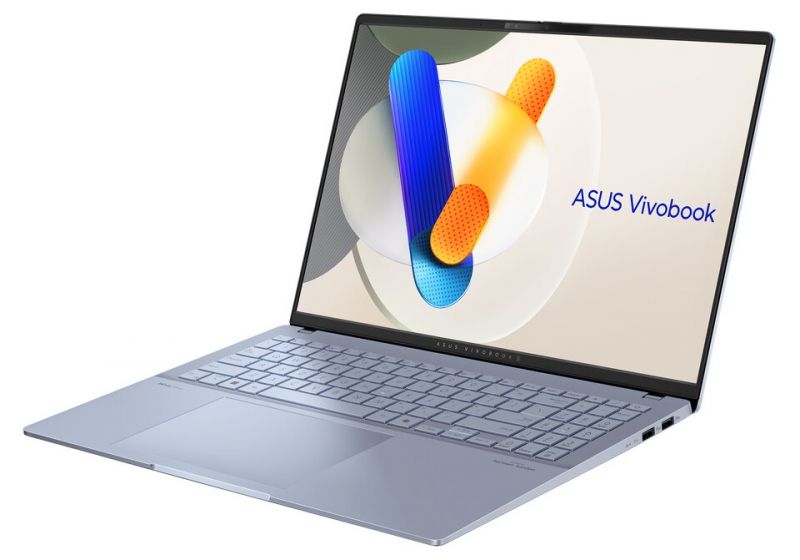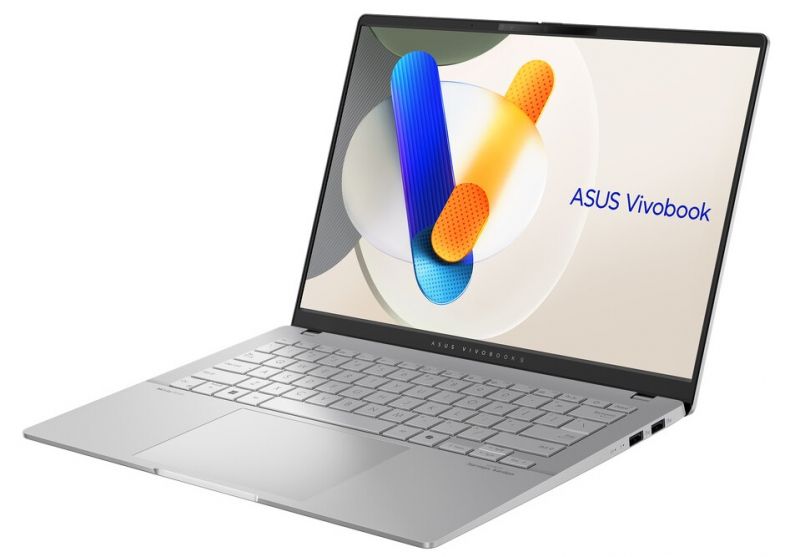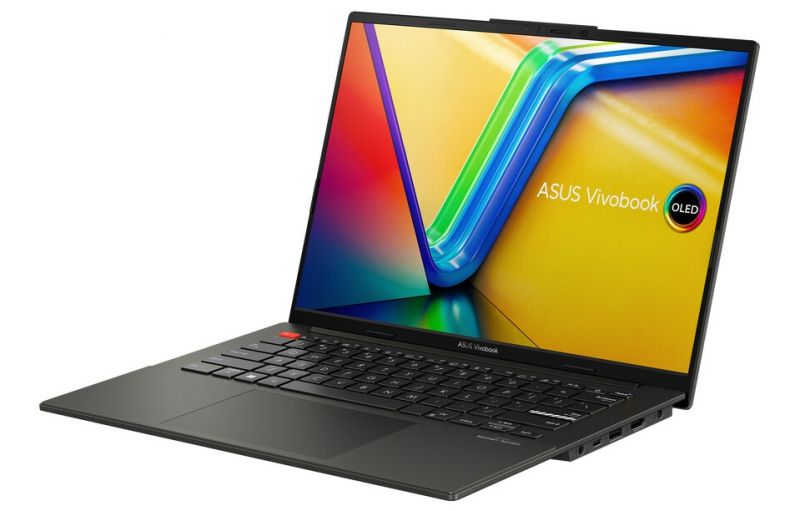Home >Hardware Tutorial >Hardware News >ASUS upgrades Vivobook S OLED series notebooks: Core Ultra / Ryzen 8040 processor optional
ASUS upgrades Vivobook S OLED series notebooks: Core Ultra / Ryzen 8040 processor optional
- 王林forward
- 2024-02-21 18:07:02683browse
According to news from this site on February 21, Asus has recently upgraded its Vivobook S OLED series laptop series, equipped with the latest Intel Core Ultra and AMD Ryzen 8040 series processors.
With this update, ASUS has launched the 14-inch Vivobook S 14 OLED (models M5406 and S5406), the 15.6-inch Vivobook S 15 OLED (models M5506 and S5506) and the 16-inch Vivobook S 16 OLED ( Models M5606 and S5606).

Vivobook S 14 OLED
This 14-inch notebook offers 2 screen configurations, one of which is a resolution of 2880 × 1800 pixels, refresh The rate is 120 Hz, and the other is a resolution of 1920 × 1080 pixels and a frequency of 60 Hz.
Both screen panels have a 16:10 aspect ratio and are VESA DisplayHDR True Black 600 certified, with 100% DCI-P3 color coverage and a peak brightness of 600 cd/m 2.
Vivobook S 15 OLED
Vivobook S 15 OLED has only 1 screen option, with an aspect ratio of 16:9, supporting a resolution of 2880 × 1620 pixels and a refresh rate of 120 Hz, brightness 500 cd/m 2, VESA DisplayHDR True Black 500 certified and 100% DCI-P3 color gamut coverage.
Vivobook S 16 OLED
Vivobook S 16 OLED’s OLED panel aspect ratio is 16:10, supports 3200 × 2000 pixel resolution, refresh rate 120 Hz, and passes VESA DisplayHDR True Black 600 certified, with a peak brightness of 600 cd/m2 and 100% coverage of the DCI-P3 color space.
In terms of configuration, the Intel processor version is equipped with Ultra 5, Ultra 7 or Ultra 9 processor.
Vivobook S 14 OLED and Vivobook S 16 OLED models are available with 8 or 16 GB of LPDDR5X-7467 memory, and a 512 GB or 1 TB PCIe 4.0 solid-state drive. Note from this site: The new Vivobook S 15 OLED also supports 32 GB of memory.

AMD processor versions are available in a choice of Ryzen 9 8945HS or Ryzen 7 8845HS, with 8 to 32 GB of LPDDR5X-7500 memory and up to 1 TB of solid-state drive.


The above is the detailed content of ASUS upgrades Vivobook S OLED series notebooks: Core Ultra / Ryzen 8040 processor optional. For more information, please follow other related articles on the PHP Chinese website!

